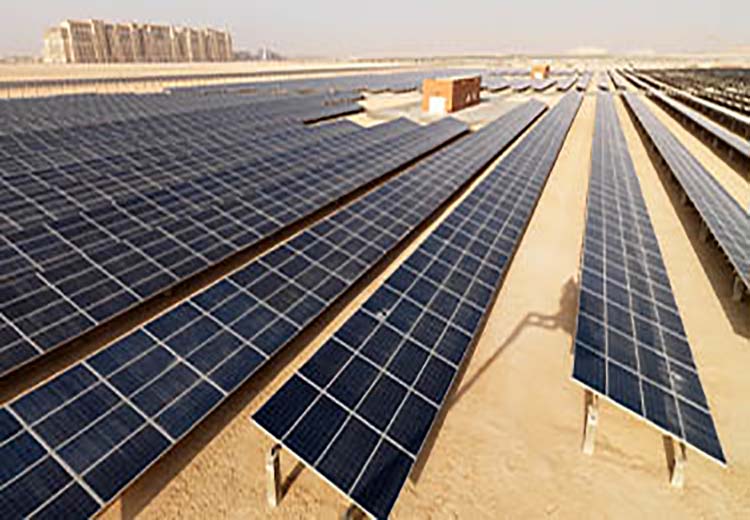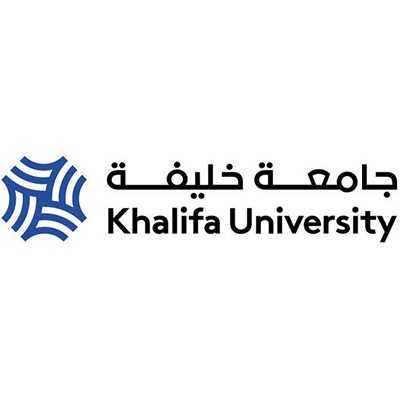Clean and Renewable Energy

Sponsored by

Sponsored by

CLEAN AND RENEWABLE ENERGY
Khalifa University pursues research in clean and renewable energy and water and environment through its Masdar Institute, which serves as an interdisciplinary research unit, engaging a critical mass of KU faculty in the long-term strategic priority of sustainability. Four of the five research centers grouped under Masdar Institute advance the goal of achieving clean and renewable energy– the Research Center for Renewable Energy Mapping and Assessment (ReCREMA), the Nuclear Technology Center (NTC), the Advanced Power and Energy Center (APEC), and the Sustainable Bioenergy Research Consortium (SBRC). They support projects in solar and other renewable energy sources, electrical power transmission and distribution, energy storage, energy efficient cities and buildings, and nuclear energy.
SOLAR AND WIND RESOURCE FORECASTING
The Research Center for Renewable Energy mapping and Assessment (ReCREMA) at Khalifa University has established itself as a leading regional research center in the field of earth observation, renewable energy mapping, solar technology simulation, satellite image processing, and atmospheric modeling. ReCREMA is now recognized as a regional research hub for the adaptation of earth observation technologies for environmental monitoring in desert and arid environments. ReCREMA is presently working on a diverse range of research projects with special focus on desert and arid climates, such as urban heat island studies, national-level water budget, land-atmosphere interactions, modelling of hydro-meteorological variables; and climate change studies that monitor oil spills, algal blooms, solar resources, and dust storms. The Center has succeeded in developing regional knowledge and leadership in renewable energy assessment and mapping for the Arabian Peninsula and countries with similar climate issues, mainly in Africa. ReCREMA played a proactive role in developing and operating IRENA’s Global Atlas Project. The Global atlas servers are presently hosted at ReCREMA: operated and maintained by the Center engineers.
The core research activities at ReCREMA focus on the estimation of solar resource potential and solar technology performance in arid and dusty environments. ReCREMA has developed a wide range of operational products and interactive online tools presently used by multiple stakeholders and key regional players in the RE field. ReCREMA received a mandate from the UAE Government to develop the UAE solar and wind atlases: the atlases were successfully launched in June 2012 (solar) and January 2015 (wind).
ReCREMA’s research in solar technology assessment is largely based on ground-breaking work done at the center on the mapping of solar resources on the Arabian Peninsula, taking into consideration the dusty and arid conditions in the region. In 2013, ReCREMA launched a project to develop technical performance models for the most common technologies of utility-scale solar power generation and integrate them into the mapping tools of regional solar resource assessment in order to translate the solar resource maps into information about the economic potential of solar energy.
ELECTRICAL POWER TRANSMISSION AND DISTRIBUTION
Rapid developments in the UAE’s energy sector and the continuous growth in population, and energy demand, coupled with the current transition toward clean and renewable energy resources, will mandate a key partnership between research institutions and industry leaders. This alliance will be necessary to maintain high standards and security in the generation, transmission and distribution of electric power.
Power system stability is particularly relevant in the UAE context given the stated objective of the Abu Dhabi and UAE governments to significantly increase the penetration of Renewable Energy (RE). This will result in greater spatial distribution and temporal variability in electricity generation, both of which would impose additional strain and stability threats on existing power networks. In addition, the recent completion of Gulf Cooperation Council country interconnections between UAE, Oman and Saudi Arabia has significantly changed the stability profile of the UAE power system and raised concerns about inter-area oscillations (IAOs). Existing tools for power system stability assessment are inadequate given the complexity of the challenges associated with the uncertainty of RE power generation and nonlinearities of the power systems.
With this backdrop, Professor of Electrical Engineering and Computer Science Dr. Mohamed El-Moursi is leading a collaborative project with Abu Dhabi Transmission and Dispatch company (TRANSCO) and Manitoba Hydro International to develop the Stability Assessment, Visualization and Enhancement (SAVE) Tool for the UAE Power System. The goal of this project is to develop state of the art mathematical methods of stability assessment combined with a data analytics-based classification engine to precisely estimate the domain of stability and to predict the transient stability margins in order to monitor, predict, and interact with network operators in real time through utilization of real-time measurements that evaluate transmission network stability. Furthermore, a visualization system is being developed to support human-in-the-loop classification, diagnosis of the transmission system events, and the visualization of system stability.
NUCLEAR
The Nuclear Technology Center (NTC) is designed to provide a hub that addresses the present and future research requirements of the UAE’s nuclear power program as it aligns to the UAE’s long-term economic vision and delivers key stakeholders’ goals for the delivery of safe, clean, and efficient nuclear energy while protecting the public, workers, and the environment.
Safe operation and management of nuclear power is based on the highest standards of engineering design, construction, operation and waste mitigation. The Emirates Nuclear Energy Corporation (ENEC) is presently building four 1400MWe nuclear power plants to meet the industry’s highest standards, which will be overseen and safeguarded by the Federal Authority of Nuclear Regulation (FANR). ENEC and FANR are the NTRC’s key stakeholders.
The NTRC’s mission is to conduct research in the main thematic areas of nuclear technology that are necessary for the safe operation of the UAE’s nuclear power plants, while estimating the consequences should faults occur. The center’s research will aim to minimize the risks of faults while innovating in methodologies and practices of nuclear safety and systems, nuclear materials/chemistry and radiation safety in the environment. The center will provide information for informed decision making and help establish the UAE as a leader in nuclear technology.
A key output from the NTC will be the capacity building of talented UAE Nationals who will be the pioneering nuclear engineers to lead the country from being a relatively new nuclear user to a leader in strategic areas of nuclear technology.